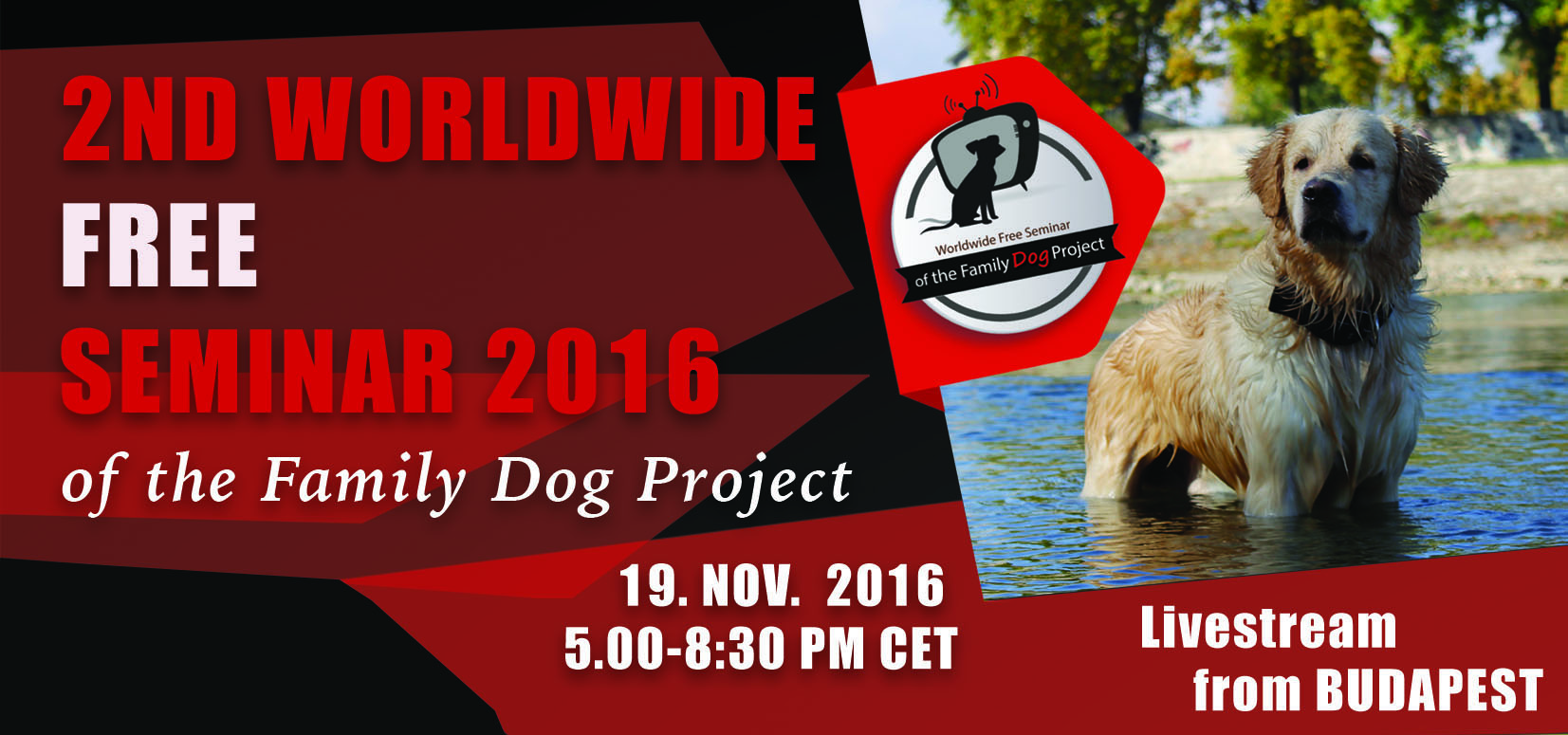Webinar: 2nd World Wide Free Seminar of the Family Dog Project
Vi følger Webinar: 2nd World Wide Free Seminar of the Family Dog Project, live!
Family Dog Project ble grunnlagt i 1994 for å studere ‘atferder og kognitive aspekter ved hund-menneske relasjon’ (“the behavioral and cognitive aspects of the dog-human relationship”). Forskere, hundeeiere og hunder samarbeider i forskningen.
Årets webinar tar for seg etologi (læren om/biologisk studie av dyrs atferd/handlinger), interaksjon mellom hund, menneske og “social robots”, oksytocins effekter på sosial følsomhet, samt biologisk bevegelses-oppfatning hos hund, neste generasjons automatiserte systemer, hunders hukommelse, imitasjon/herming, hvordan snakker vi til hundene våre, hunders forståelse av menneskelig tale, seniorhund, hilseatferd mellom sosialisert ulv og menneske, måling av luktesans og knurring.
– “On behalf of the organizing committee of the Family Dog Project, we proudly present our yearly largest public event on canine science – coming directly from researchers to the professionals and dog enthusiasts worldwide.
Organized by the MTA-ELTE Comparative Ethology Research Group; the Ethology Department of Eötvös Loránd University; The Hungarian Ethology Foundation & Comparative Behavioural Research Group of the Hungarian Academy of Sciences. Program organisers: Enikő Kubinyi, Péter Pongrácz, Ádám Miklósi. Kilder: Family Dog Project. Family Dog Project Facebook.
Program
- Chair: Lisa Wallis, PhD
- 17:00-17:05 Welcome/Opening speech by Prof. Ádám Miklósi, head of the Ethology Department
- 17:05-17:20 Anna Kis, PhD: Do robots make good dogs? An example of how studies on dog behaviour can advance the development of social robotics
- 17:20-17:35 Krisztina Hegedűs-Kovács: Effects of oxytocin on social sensitivity in two breeds of dogs: a comparison of the Siberian husky and Border collie.
- 17:35-17:50 József Topál, DSc: The effect of oxytocin on biological motion perception in dogs.
- 17:50-17:55 BREAK
- 17:55-18:10 Linda Gerencsér, PhD & Bence Ferdinandy: Next generation automated systems: real-time behavior recognition in dogs and wolves.
- 18:10-18:25 Prof. Ádám Miklósi: Can dogs remember what their owner did?
- 18:25-18:40 Claudia Fugazza, PhD: Spatial bias in deferred imitation performance – Will your dog go where you go?
- 18:40-18:45 BREAK
- 18:45-19:00 Anna Gergely, PhD: Look, who am I talking to? Similarities between baby-talk and doggerel
- 19:00-19:15 Attila Andics, PhD: What do dogs understand from human speech? – an fMRI study
- 19:15-19:30 Enikő Kubinyi, PhD: Introducing the Senior Family Dog Project
- 19:30-19:35 BREAK
- 19:35-19:50 Dorottya Ujfalussy, PhD: “What do you make of me?” Greeting behaviour of hand reared socialised wolves toward humans
- 19:50-20:05 Márta Gácsi, PhD: How can we measure canine olfactory capacity? Comparison of wolves and various dog breeds
- 20:05-20:20 Péter Pongrácz, PhD: The truth is in the dog growls – women are scary, but men are scarier
- 20:20-20:30 CLOSING THOUGHTS
– “Oksytocin er kjent som et hormon som er viktig under fødsel, og for å skape et bånd mellom mor og barn rett etter fødsel. Oksytocin er også kjent som «velvære-hormonet» fordi det også er assosiert med kjærlighet og sosiale interaksjoner”. Wikipedia

Kilder: MTA-ELTE Comparative Ethology Research Group; the Ethology Department of Eötvös Loránd University; The Hungarian Ethology Foundation, Family Dog Project, Family Dog Project Facebook, Wikipedia.
